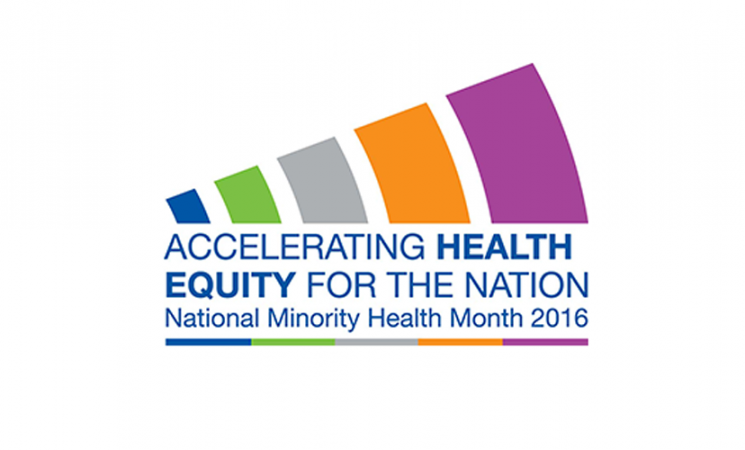Archived Content
This page is archived and provided for historical reference. The content is no longer being updated, and some of the information may have changed over time and could be outdated or inaccurate.

By William Riley, Ph.D., OBSSR Director
The United States pays more for health care than any other country and yet reaps comparatively fewer health benefits. April is National Minority Health Month, a good time to focus on the negative impact that health disparities affecting racial and ethnic minorities and low-income populations have on the nation’s health care bill. The Commonwealth Fund reports that health care costs in the United States represent 17 percent of GDP—or more than $9,000 per person per year. This is nearly 50 percent higher than other developed countries in Europe and Asia, most of which spend between $3,000 and $6,000 per person per year. The 2016 theme for National Minority Health Month, sponsored by the Office of Minority Health, is “Accelerating Health Equity for the Nation.” Indeed, there are many reasons to speed up this effort. But, without a doubt, the effects of health inequities on health care costs should be compelling even to those social groups not directly affected by them.
Research showing that addressing health disparities would greatly reduce U.S. health care costs is hardly new.
Research showing that addressing health disparities would greatly reduce the health care costs of this nation is hardly new, as a cursory review of the literature indicates. A 2014 study of diabetes in North Carolina showed that the prevalence of diabetes was 9 percent overall but 76 percent among adult Medicaid enrollees. The study authors estimate that $225 million could be saved each year by the North Carolina Medicaid program if racial and economic disparities in diabetes prevalence were eliminated. Extend this finding across the 50 states and multiple chronic conditions, and it is evident that our health care cost problems are substantially a health disparities problem.
Our health care cost problems are substantially a #healthdisparities problem #NMHM16.
Reducing Health Disparities Could Save Billions
The Joint Center for Economic and Political Studies estimates that between 2003 and 2006, 30.6 percent of direct medical care expenditures for racial and ethnic minorities were excess costs stemming from health inequalities. Moreover, the center asserts that eliminating health disparities for minorities would reduce direct medical care expenditures by nearly $230 billion. One way to reduce these health disparities is to pay greater attention to social services for poor and under-resourced individuals. The Commonwealth Fund report notes that the United States spends less on social services than other countries and is the only country that spends more on health care services than social services as a percentage of GDP. Inadequate social services are among the many multidimensional and complex determinants of health disparities. The National Institute on Aging Health Disparities Research Framework lists a range of determinants that include:
- Environmental (geography, socioeconomics)
- Sociocultural (cultural and social factors)
- Behavioral (health risk behaviors, risk/resilience)
- Biological (genetic, cellular) determinants
The imperative for the health disparities research community is to understand the relative and interactive contributions of these various determinants and develop and evaluate population- and individual-level interventions to reduce health disparities.
From 2003 to 2006, almost a third of direct medical expenditures on minorities were due to #healthinequalities.
Because many of these determinants are social and behavioral in nature, the OBSSR led the first NIH-wide health disparities funding announcement in 2008. Partnering with NIH Institutes and Centers, the “Behavioral and Social Science Research on Understanding and Reducing Health Disparities” funding announcement resulted in nearly 200 grants that produced more than 400 publications. Currently in its third issuance, this health disparities funding announcement continues to receive wide NIH support. Working with NIH Institutes, Centers, and Offices, including the National Institute on Minority Health and Health Disparities (NIMHD), the OBSSR will continue to encourage research to better understand the relative contributions of the complex and interrelated determinants of health disparities and to evaluate the effects of scalable programs to reduce these disparities.
OBSSR Health Scientist Administrator Michael Spittel, Ph.D., contributed to this blog post.








